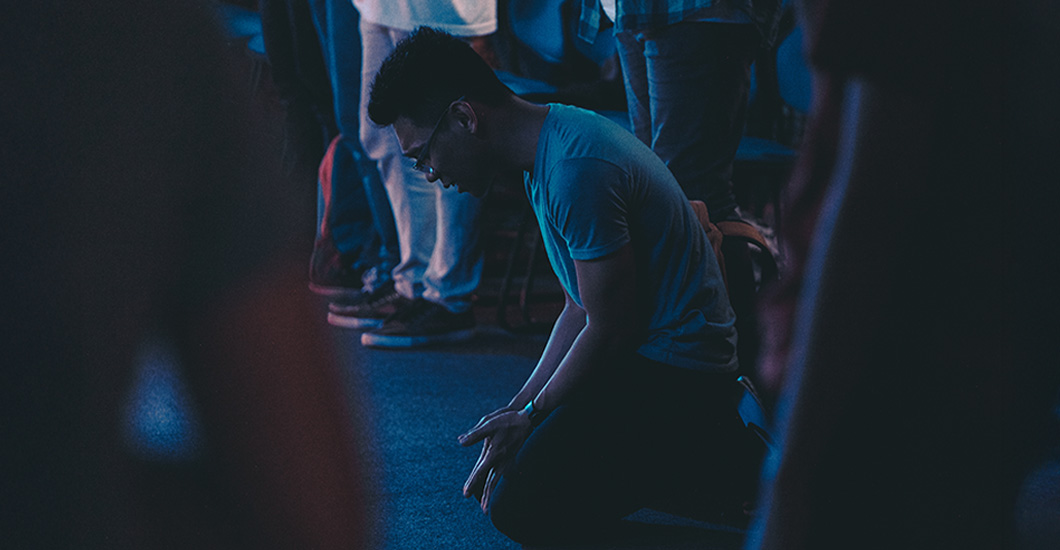- Latest articles

It was the year 387, when Monica saw seventeen years of her fervent prayers in tears being answered. She was overwhelmed with joy upon seeing her wayward son Augustine getting baptized by Saint Ambrose in Milan. Soon, they left for Africa, where she fell ill due to the land journey.
While in Ostia, Monica announced that she did not want to sail back to North Africa and instead preferred to remain in Ostia until her death. Her sons were surprised to learn their mother’s decision because they were hoping to take her back to her homeland. She told them she wanted them to remember her at the Lord’s altar, wherever they were. Through this statement, Monica made it clear that remembering her at the Mass was way more important than her burial location.
When Monica knew she was nearing her death, she revealed to Augustine: “Son, nothing in this world now affords me delight. I do not know what there is now left for me to do or why I am still here, all my hopes in this world being now fulfilled.” A few days later, she fell seriously ill, and her soul breathed the last.
Respecting her wishes, Monica was buried in Ostia but soon her body was moved to a hidden crypt in Santa Aurea in the 6th century. Later, Saint Monica’s tomb was transferred to the Basilica of Sant’Agostino in Rome.
Monica, the patron Saint of Mothers, truly believed that she would be close to her sons during the celebration of the Holy Eucharist. Her unwavering faith in Christ is a profound example that shows prayer without ceasing and hope without doubting shall bear fruit one day.
'
Last spring, the enthusiasm I felt about planting a vegetable garden was so great! I couldn’t wait for the right time to put those tiny plants into the dirt. When the time came, I had to decide what to plant. Last year and again this year, I decided to plant vegetables that could be used in preparing a salad. This included lettuce, tomatoes, green onions, radishes, and a variety of peppers.
As my garden began giving us a variety of vegetables, my husband and I savored the taste of our fresh salads almost daily throughout the summer. I suppressed the thought of the season-ending and that the last harvest would be soon. It just wouldn’t be the same going to the grocery store and purchasing these very items that God had provided us all summer long. Instead, I decided to be grateful for His blessings.
Much to my surprise and delight, the season’s last tomato was heart-shaped! My mind drifted to God’s love. This is certainly a gift to be shared. I took a few pictures of my gift from God and sent them to my family, simply saying: “Jesus loves you!” One dear friend told me that the tomato resembled the Sacred Heart of Jesus. She added that God can even use a tomato to tell us how much He loves us. I didn’t want this beautiful and delicious tomato to spoil, so I eventually used it.
As I write this story, I’m still overwhelmed by how much God loves me. Our Lord loves us in big ways, even through the smallest details of our lives, and even by using a heart-shaped tomato!
He said: “The Kingdom of God is as if someone would scatter seed on the ground, and would sleep and rise night and day, and the seed would sprout and grow, he does not know how.” (Mark 4-26:27)
'
Andrew Byron unfolds the story of the profound experience he had when he called upon the name of Jesus!
In December 1996, just two days before Christmas, my life took a devastating turn. My best friend, with whom I had grown up and who was about to become the youngest pilot instructor in Australia, died in a plane crash right in front of his family. I can still remember the feeling when my father informed me about my friend’s passing. Although it didn’t sink in at first, I remember how I broke down at the funeral. Soon, I became grief-riddled, depressed, and lost all hope. I tried to self-medicate with drugs and alcohol, which only led to greater depression, and I became very suicidal. Finally, I felt that the only way to escape the misery in life was to leave home.
The U-turn
I decided to leave for Queensland, miles away from my home in Tom Price, hoping that I would get a job, probably picking fruit. So, after school, instead of getting off at my stop, I continued my journey and got off at the highway. While hitchhiking along the Pacific Highway, an older man stopped to give me a ride and urged me to call home and inform my parents about my whereabouts. I called home and reached my father, who asked, “What are you doing? Why are you up there?” I said: “I’m leaving home,” and he replied that I was breaking his heart. I was so consumed by drugs that I couldn’t grasp how leaving home impacted my parents. When I got back in the car with him, he persuaded me to visit my aunt’s house at Old Bar beach. After dropping me off, he left. Although it was cold, I walked to search for my aunt’s house. Suddenly, a car pulled over and offered me a ride. They invited me to stay at their home for the night. I was deeply touched by their gesture and chose to join them. At their home, they had a carton of beer, and we began drinking. They said I could live with them if I would sell drugs for them. I agreed and started partying with more drugs and alcohol.
But soon, a realization struck me that I had a loving family. I also realized I had just sunk into a worse situation. When I told them that I was going back home, they said I couldn’t leave, and if I did, they would have to kill me. They began torturing me with frying pans and steel-capped boots. They stripped me, tied my hands to my ankles, and blindfolded me with my shirt. I was dragged into a car boot. I could feel that my jaw was dislocated, my nose was broken, and I was in tremendous pain. I’d lost a lot of blood. They pulled over the car, and two men dragged me out of the boot. I was pretending to be dead, trying to stay stiff, but as they pulled me out, my elbow bumped into the boot of the car, and they realized I was still alive. They placed a large kitchen knife against my back and started hitting it with a rock. As the knife went up my spine, I felt this was my death; I was dying.
They thought I was dead and threw me down the cliff. I was in extreme pain. Though blindfolded, I managed to climb over a big log but ended up in the water. The water was very cold, and as I put my head in, I realized I shouldn’t give up. I could feel my breath getting shorter, my body shutting down, and a great darkness coming over me. I knew that I was going to hell. That was a terrifying moment! I cried out to God. He saved me! At that moment, I was enveloped in a sense of peace—an overwhelming warmth. So, I laid in that creek in the cold water in absolute joy, which I’ve never experienced since. Whenever life gives me trouble now, I always remember that moment.
Before I Passed Out
When the sun rose, I began climbing the cliff by grabbing saplings. I fell down several times, but eventually, I reached the top of the road. I asked God what to do, and He said: “Go right.” So I walked. I don’t know how far it was, but I found a Ranger’s Cottage. No one was home, so I grabbed a brick and broke the window. I rang Triple Zero*, took a hot bath, and went to the fridge, where there was one beer. I had no idea where I was. I rang Triple Zero again. Looking out the window, I saw the car that had dropped me off the previous night driving past very slowly as if about to turn into the driveway. At that same moment, a police car and an ambulance came up the driveway, causing the car to speed off. The ambulance crew assessed me and said they couldn’t transport me by road and would have to get a helicopter, considering my condition.
The Westpac rescue helicopter landed, and the pilot got out and asked: “Do you mind if I pray with you?” He laid his hand on my head, and I passed out.
It was February 27, 1998; My entire life changed that day. I woke up in the hospital and soon learned that the knife had gone up my spine and came to rest, touching the sheath of the nerve that controls breathing. A surgeon from Sydney had to fly in to remove the knife surgically.
Finding My Way
Overcoming the greatest chapter in my life, I moved to Sydney in 1999, where I attended the Youth Mission. While being there, I experienced a profound conversion and truly fell in love with Jesus. I laid everything down for Jesus, and again, I was filled with peace. I now realize that whenever any difficult or traumatic situation or circumstance comes up in my life, I recall the thought I had while lying at the bottom of the cliff—just look up and understand that God already knows; He goes before us and has every situation under control. I have to trust Him, and it’s a beautiful thing.
Later, I moved to Melbourne, where I connected with the Disciples of Jesus. This Covenant Community has been very good for formation. Through the Ministries, I learned the importance of God’s armor. In the community, brothers in Christ can lean on one another, share their experiences, and walk the journey together. When I had my addictions to drugs and alcohol, I couldn’t escape their grasp over my life. I tried many things, including cutting off friendships and isolating myself, but nothing seemed to work. The only thing that could free me from the addiction was Jesus—trusting Him and allowing Him to enter my life. I love Jesus very dearly. For anyone suffering from addictions, I would say that Jesus is the way.
*Triple Zero (000) is the primary national emergency telephone number in Australia.
'
No trip lasts forever, but how do we convince a child that it is time to let go?
I lived in Charlotte, North Carolina, for a while, and out of all the jobs available, I found myself pedicabbing. That’s right, I was tasked with bicycling people around the city. Of course, I was in the best shape of my life. I carried numerous people, covering upwards of 100 miles on a weekly basis. I gave rides to celebrities, political figures, conference goers, and the nightlife thrill-seekers. My most memorable fare was an unexpected family just leaving a restaurant. As chance would dictate, I was in the exact vicinity searching for my next customer, and I yelled: “Hey, y’all need a ride?”
These two parents were doting on their seven or eight-year-old child. He was celebrating his birthday, and when he saw me, the kid immediately started tugging on his father’s arm and pleaded: “Pappa, Momma! Can I please take a ride? Please? Please? Pleeeeeeease?”
They both looked at him endearingly and said: “Of course. It’s your special day!”
Without asking the price, the father asked if I could give them a nice long tour of Uptown Charlotte. Hence, I was tasked with showing them all the spots I could think of that would interest the youngster. We weaved in and out of traffic; I showed them parks, beautifully lit buildings, waterfalls, monuments, and statues…We even stopped to listen to troubadours and watch street artists and magicians. No doubt, this child was having the time of his life. The gentle summer breeze rushed through our hair, and I, too, felt a certain joy knowing I was making this kid’s birthday extra special. Hopefully, it would last a lifetime—it certainly has for me.
A Life Lesson
The trip came to an end, and when it was time to disembark, the kid immediately started to whine and plead: “No! Pappa! I’m having so much fun. I don’t want it to end. Please, let’s continue!” I definitely hear the hint of a tantrum as I start to see tears well up in this kid’s eyes. I simultaneously see the father beginning to worry. After such a wonderful evening and giving his son all he asked for, would he also be forced to play the ‘bad guy?’
I am now convinced the Holy Spirit inspired me to intervene, not because I was trying to give grand advice or bestow memorable life lessons. In fact, my motivation was that I saw an opportunity to be well-tipped for all my efforts. I now see that what was said paved the way for me to learn a much more important lesson—a lesson God is trying to teach us all.
Turning around in my seat and smiling, I said to the kid: “Thank you so much for sharing your special day with me! I was privileged to make this day so special for you. I can honestly say I had just as much fun giving the ride as you probably had taking it. But what makes this experience so special is that it can’t last forever. If all great things never ended, this experience would no longer be extraordinary; there would be nothing to compare to this exciting activity. But now that it’s over, I hope you take this experience and treasure it forever.”
The father smiled at me and said: “Thank you.” He was undoubtedly relieved that his son no longer showed signs of throwing a tantrum. In fact, the kid did something I thought was even more shocking. He grabbed his father’s hand, looked up at him, and said: “You’re right, Pappa! It’s time to go home. Thank you.”
Twelve years later, I realized that what I said to the kid was nothing compared to the lesson I was to learn from the response he gave his father. The world provides an array of thrills, experiences, and distractions. Some bring joy, while others just give the illusion of such. I had a great life as defined by the masses: I ended up going on to have a promising career, and I traveled the world and continued to enjoy worldly (often sinful) things. In short, I refused to get off the perpetual exciting ride. But even when I was most estranged from the faith, the Holy Spirit was still working, paving the way for when finally God said: “It’s time to disembark.” I now realize that, like this kid, my response needs to be to grab God’s hand and say: ” You’re right Pappa! It’s time to go home.”
'
Untold graces and miracles are available to those who practice surrender.
I frequently tell my friends about ‘surrender,’ but I receive this question in return: “What does surrendering look like in reality? Am I supposed to ignore the dirty diaper?” The short answer is no! Clean the baby and toss the diaper.
Each moment in our lives is a gift from God. Every second is pregnant with possibilities. I can surrender my exhaustion, frustration, joy, or confusion by giving God access. In doing so, I am letting Him determine solutions. I use my freedom to yield to the One with a better plan. How do I know it is better? Because He is the Alpha and the Omega.
Although we each have various challenges, the same principles apply. The answer lies in our perspective. Essential to surrender is how we look at any given situation. For instance, I can either go: “Why does the baby always wait until I am ready to leave the house to dirty her diapers?” or instead, be more positive: “That was a close call. I’m happy it happened at home.”
The latter isn’t always my first thought, but I’m making progress. Assuming that various people and situations are specifically intended to frustrate me makes me a target. Pay attention to your perspective. How do you react when something or someone upsets you? Do you feel personally attacked? A positive way to combat that is to flip it around. God has a different plan for me today. Shifting from a target mentality to a recipient of God’s grace is all in one’s perspective.
Crosses of Our Own Making
Being a recipient allows me to receive invitations from God throughout the day. I can freely agree or refuse to be His instrument in any situation. It’s letting God’s Will be accomplished through my yes. In this, I imitate the Master and grow in virtue. Can you begin to see how surrender works?
How much of the anxiety and fear that we experience is self-imposed? I once read that many of the crosses we carry are of our own making. Talk about self-defeating. Thinking that we are obliged to handle everything independently is one way we have unnecessary crosses.
Do I see it as another dreary diaper change? Or do I see it as an honor to be able to help my daughter, who cannot help herself? We can practice surrender in small and inconsequential ways, thus growing in holiness.
The other segment of surrendering comes from allowing yourself to become a gift from God. Our yes to the Lord through our surrender will enable Him to position us as His instruments in each circumstance. I cannot begin to share how often this happens to me. In giving my yes, I know without a doubt that God will provide. And boy, does He! I am continually surprised by the words coming from my mouth (or written on the page). Repeatedly, it is spot-on. God knows. I do not.
The One Who Knows
Surrendering frees me from having to solve every problem or carry its weight. I am free to be used by the Almighty in His redemptive work. It allows God to be Father, Savior, Healer, and Sanctifier in and through me. In this way, I become a gift to someone else. It’s a win-win! In this little way, I get to participate in his salvific work while He does all the heavy lifting. Those people and that situation are precisely where I am supposed to be because, where I am, there is the Trinity for whom nothing is impossible.
“No action, however insignificant, if accepted and performed as coming from God’s hand, and in conformity with His will, is anything other than redemptive and a sharing in the great work of salvation begun by Christ’s Passion.” (He Leadeth Me by Fr. Walter Ciszek)
Who is the perfect example of surrender? Our Blessed Mother. She showed us how to surrender in her fiat: “Here am I, the servant of the Lord; let it be with me according to your word.” (Luke 1:38)
At the Cross, she was not angry, spiteful, cursing, or asking why, nor was she a passive doormat. Instead, Mary simply stood there, giving her fiat in quiet surrender to God. It is a process of letting go, not into thin air, but into the hands of our Father.
When I look back on my own experiences, in those moments of helplessness when life threw me on the asphalt, crushed me on the ice, or shattered the silence as each son shared yet another loss of their little one…Knowing why didn’t make it any better. These are the times of surrender and fiats. It is not quitting, rolling over, or giving up. It is handling our problems in confidence and surrendering them to the One who knows the next perfect step.
Let it be, Lord, I trust in you.
Lord, I give You every moment of my day and access to everything in my life. I welcome Your solutions. I am precisely where You want me to be right now.
Pray the Surrender Novena: shalomtidings.org/prayer_categories/novenas-to-our-lord
'
How can your peace be restored when facing the challenges in life?
Sewing is one of my favorite hobbies. I especially enjoy putting together pieces of fabric to create quilt tops. One particular design of mine is called a ‘Crazy Quilt.’ It consists of sewing random scraps, of otherwise useless pieces of fabric, together in such a way that it resembles a mosaic pattern. One day, when working on Crazy Quilt blocks, it occurred to me that each block resembled broken pieces of pottery that, when put together, recreated its own beautiful pattern. It also reminded me that sometimes life can feel like it’s broken into pieces, yet in the Potter’s hands, God can reconstruct those pieces into a new life.
God is the source of all peace, but concupiscence caused by original sin can result in God’s peace within us being severed by challenges, temptations, or sin that draw us away from Him. Severed peace makes life feel broken and without purpose. But there is hope, for there’s always hope in God.
The Book of Genesis, when read through God’s lens, is clearly the most wonderful love story—our love story with Him. Throughout the creation passages in Scripture, God remarked that everything He created was good. However, on the sixth day, when God created mankind, He said: “It was very good!” Why ‘very good?’ Simply because God created us in His image of goodness so He could love us and be loved in return.
A Gentle Reminder
All mankind was meant to love completely and live in peace under His protection. However, humanity, through Adam and Eve, chose to challenge God’s goodness, disobeying Him and thereby stepping out of His protection and peace when they chose to believe Satan (the Prince of Lies) over God. Their unfortunate choice, called ‘original sin,’ resulted in the shattering of their peace through the challenges, temptation, and sins that entered outside of God’s protection. His peace had been broken.
God is good and He loves us, so He didn’t leave us this way. The Bible’s entire Old Testament details centuries of His efforts to re-establish the relationship He had with us in the Garden of Eden. However, as He was trying to get our attention, the Prince of Lies began to confuse mankind through temptations that led to more sin, pulling humanity further from God. Not to worry though, for Saint Paul reminded us that ‘God is for us’ and that nothing “in all creation, will be able to separate us from the love of God in Christ Jesus our Lord.” (Romans 8:39)
How? Because God came for us Himself. “For God so loved the world that He gave His only Son, so that everyone who believes in Him may not perish but may have eternal life.”(John 3:16)
It’s unfortunate that we didn’t have a say when the choice was made to commit original sin, but we can reverse the outcome of that sin by choosing to accept and follow Jesus, the Son of God, who is the Prince of Peace(Isaiah 9:6). He wants to lead us back to the Father in Heaven, but often, getting to Him is difficult when we have to step over all the painful broken pieces in our lives. Remember, Scripture is His love story to us. He knows our struggles and assures us that He is our refuge and our strength.
Back to the Crazy Quilt
It’s amazing when the numerous fabrics, patterns, and colors of a Crazy Quilt that are stitched together somehow blend to create a beautiful quilt top. Scripture reveals that God’s pretty crafty too. Not only is He a potter (Isaiah 64:8), but also He knits (Psalm 139:13), and I like to think He even sews.
I wonder if He might see mankind as His own ‘Crazy Quilt’ creation. Although not His original design, we’re a collection of broken pieces all put back together again; He has recreated us, for “If anyone is in Christ, there is a new creation: everything old has passed away; see, everything has become new!”(2 Corinthians 5:17)
So, when challenges, temptations, or sin are severing the peace within us, let this inherent thought bring you comfort: “We know that all things work together for good for those who love God, who are called according to His purpose.”(Romans 8:28)
What’s that purpose again? God created us in His image of goodness so He could love us and be loved in return. Is there anything better than a warm quilt and a wonderful love story with a happy ending?
'
How does any parent survive the death of a child?
I cannot begin to answer this question as a professional counselor but only as a mother who has lived through the worst nightmare of her life.
We were blessed with two boys who were the joy of our lives. The night of the accident, my husband Cliff and I, along with our 15-year-old son Chris, spent an indescribable, terrifying night waiting, hoping, and praying that David, our 17-year-old, would somehow return home safely. The accident occurred around 10:30 pm, but the highway patrol never discovered it until 7 am the next day. When we received the horrible news, our scant flicker of hope crumbled helplessly within our hearts.
I cried from the depths of my being. I was emotionally numb. Looking back after all these years, I see how God, in His compassion and love, supplied my body and spirit with an emotional safeguard that temporarily blocked out the enormous shock of this painful, unbearable reality. Thinking of that night reminds me of the touching words of the poem entitled Footprints in the Sand, in which our loving God said: “During your times of trial and suffering when you see only one set of footprints, it was then that I carried you.”
God continued to carry our grief-stricken family through the painful funeral, the processing of life insurance claims, and the closing out of David’s checking account. Each time I had to do these necessary things, I asked Jesus to give me strength.
Tackling Grief
After three weeks, I went back to work. I felt as though I was leading a double life during the months that followed. I would drag myself to work each day, drained and consumed with a deep sadness. For months, I felt as though I was an actress playing a part in a real-life drama. I tried to function normally at work, attempting to perform my required duties. At home, behind closed doors, I could then be true to my feelings and sob from the deepest part of a mother’s grieving heart. Crying often became my only cleansing release.
In this age of fast food, high-speed Internet, and instantly replaceable everything, society has a hard time accepting the fact that deep grief takes time to heal. If a person has a physical injury, he or she is pampered and taken care of until the wound has been completely healed. But it seems if a person has an emotional injury, he or she is expected, in a short while, to show up for work and be as efficient as ever. I finally had to accept the fact that society as a whole didn’t consider emotional wounds to take time to heal. I had shared one part of that journey earlier in an article titled Impossible Made Possible*.
Healing is not a single-moment-magic. I continued into the next year, processing through my pain and loss. With special dates like Thanksgiving, Christmas, David’s birthday, and what would have been his high school graduation, I regressed into a deep sadness, filled with many days of crying. The professionals in the field of grieving state: “The healing process is more like a lightning bolt, full of ups and downs, progressions and regressions, dramatic leaps and depressing backslides.” When my sorrow overwhelmed me, God always sent caring neighbors, understanding friends, and loved ones. They each listened, loved me, and helped me to go on.
Into the second year of processing my grief, I became aware of my deep hidden guilt. My guilt stemmed from an acute sense of regret about not being able to say all the many things hidden deep in my heart to my son David while he was alive. I knew, as a mother, I had made many mistakes while raising my son. I felt it was too late to share those precious thoughts and feelings with him. I suffered over this and asked God to forgive me. I felt God had forgiven me, but I couldn’t forgive myself. I decided to write my son a letter in which I was able to express my deepest thoughts and feelings to him.
After I finished the letter, I felt a sense of cleansing and release. David’s physical life is over, but his soul is with Jesus, surrounded by unconditional love. This is indeed the promise that Jesus holds out to each of us. “I am the resurrection and the life. Those who believe in Me, even though they die, will live.” (John 11: 25) I have a renewed sense of hope because I know that I will see my child again at the Heavenly Banquet being prepared by our Father in Heaven.
Through experiencing deep anguish and sorrow, I have emerged as a more compassionate person. As I release my son in love, I have received the healing power of God’s grace. As my wounds have healed, so do I become an instrument of God’s grace in reaching out to others who are grieving…
*You can read the article Impossible Made Possible here: shalomtidings.org/impossible-made-possible
'
A couple in the United Kingdom had a shocking discovery when their treasured garden ornament of over 40 years turned out to be a live bomb!
They had always thought the shell was a harmless relic, a ‘dummy’ used in naval training exercises. But one fateful morning, police knocked at their door. Soon, the bomb squad arrived, and the couple had to face the devastating truth.
Despite the danger, they refused to evacuate, saying: “We’re not leaving. We’ll bear the consequences.” Luckily, the bomb’s charge was minimal, and it was safely transported to a quarry, where it was detonated under a pile of sand.
This harrowing tale is a powerful reminder that even the things we hold dear, parts of our lives that we consider prestigious, can be harmful. Sin, like the bomb, can masquerade as attractive and desirable, but it ultimately leads to destruction. Even when we realize its destructiveness, we have an innate tendency not to back off and reject that danger. Breaking free from harmful inclinations can be daunting, but we must realize it’s the only way to achieve true freedom and peace.
As we reflect on this couple’s story, let us examine our lives. What are we holding onto that may be harmful to us? What ‘ticking time bombs’ are we ignoring, thinking they’re harmless?
'
Letting go is not easy…But what happens if you do it?
Ever since the age of one, I have been living in a foster home. George and Hazel, our foster parents, took care of almost ten of us. Our foster dad was an aggressive man, and we were all terrified of him. Every problem was addressed through acts of violence; what was even more terrifying was that he would often specifically pick me as his target.
I suffer from acute asthma. One night, as I was in bed, coughing and wheezing, struggling to breathe, he came into my room and sat on top of me! He thrashed me so badly that I couldn’t lean on my back or move. Later that night, when everyone fell asleep, my foster parents secretly inspected my back; through the mirror, I not only saw the reflection of my back but also the shock on their faces. The next day, the other boys took a look and said it was blue-black from top to below. Though the people from foster care would come and check on us occasionally, we were too afraid to report on him.
Toughest Decision
Once his wife passed, his aggression intensified even more. The beatings got worse. One day, he had me in the corner and I was asked to lift my arms to be punched underneath so that there would be no visible bruises. I can’t even remember what it was about. I was a fifteen-year-old boy feeling powerless against this grown, strong construction man. He punched me, again and again and again. Then, he looked directly into my eyes and told me something that changed my life forever. I’ll never be able to forget it because it far surpassed the pain of all the beatings he had given me put together. He said that the man who had me should have been castrated. All of a sudden, something sweet got broken inside of me. I remember him clearly asking me to stay there before he went inside. At that moment, I decided to run and never come back. It was snowing that night and I only had one jacket and a pair of shoes. I just ran.
Things became horrible when I went to London to meet with my biological mother. We did not really know each other; we ended up arguing so much that I was thrown out of the house. That night, I wandered around as I had nowhere to go. For a split second, I felt like there were two choices before me—to live or call it a day. It was easier to call it a day; I wasn’t worried about death. It all happened within a split second, but I told myself: “Yes, I want to live.”
For a few nights, I crashed at my friends’ places. While bouncing from one place to another, I got in contact with my foster brother Nigel back in Manchester. Over the months spent together, he had become a father figure to me. I started valeting and cleaning cars in his garage; everything was going pretty well. He watched over me and took care of me until one day, while we were at the gym, he suddenly collapsed and died. I was devastated and I fell into the deepest darkest place in my life.
Making Amends
I had no faith. I didn’t think about God. But one day, I found a video cassette in my letterbox; it was about the story of Jesus. I watched it several times, and I began to realize that there was a presence around me. As time passed, I realized that my relationship with God was growing deeper. The desire to be a Christian grew stronger in me and finally, I got baptized. I remember coming from the Baptism with the biggest smile that I just couldn’t take off.
As time flew by, I became an intercessor, praying for people who grew up in similar situations. And wonderful things happened.
One day, at 5 in the morning, I was praying in my living room. An image of my foster father appeared to me. I had no contact with him, and I wasn’t really bothered about what was happening to him. But there was this strong urge in me that was directing me to see him. I was really nervous about the meeting; the last time I saw him, I was just a boy, and he was beating me.
I finally turned up at the hospital. I had envisioned a big strong man, but there on the hospital bed was this frail old man. For a split second, I felt sorry. I asked my foster sister if I could pray for him. So, she woke him up and told him that I was there to pray for him. He said yes and went back to sleep.
I pulled out a forgiveness card and put it at the end of the bed. I had some holy water with me and I started reading the last rites. Something strange happened. I prayed in songs and put water on his head. I had never done this before. In my mind, I was saying: “Jesus, do I need to do anything else?” I heard a voice that said: “The abused prays for the abuser and sets him free.” Then it hit me, it must be coming from the Lord…Who else could that come from?
When you say: “You abused me, but I choose to forgive you,” the invisible chord that connects you to the abuser is broken at that very moment. It healed me from all the scars that I carried through my teenage years. A lot of that became non-existent and kind of melted away from the moment I forgave him. God used me to save him. It’s a miracle in itself. It was phenomenal for me.
Shortly after this, I realized there was someone else I needed to forgive–my biological mother–for abandoning me, letting me be abused, and later on, for throwing me out. It felt like I had dropped a whole weight when I forgave her.
After that, I began living a godly life.
Forgive and Move On
God says: “If you forgive somebody in My name, I forgive them too.” He not only allows us to do it, but He will help us to do it.
It’s extremely hard to be a true Christian. It is very difficult to follow Christ and be Christ-like. It’s a very difficult journey but one that is well worth it because when somebody’s done something to you, you have the power to set yourself free through forgiveness. From the moment you forgive the person who hurts you, your new life begins. You can look forward to the joy and the beauty that is to come. So, I urge everyone who is holding something against somebody who’s done you wrong, to forgive them.
Forgiveness is a decision. Forgive. Let God do the rest.
'
Q – Later this year, my brother is getting civilly married to another man. I am very close with my brother, but I know that marriage is between a man and a woman. Would I be allowed to attend his wedding?
A—This question is becoming increasingly pressing, as so many of our family and friends live lifestyles that contradict God’s revealed plan for our fulfillment.
Such a quandary can cause great angst since we want to love our family and support them, even if we disagree with their choices. At the same time, we cannot betray what we know to be true, as we believe that God’s plan leads to authentic happiness.
The Catechism of the Catholic Church (Paragraph 1868) deals with this when it speaks about ways in which we can cooperate in someone else’s sinful choice. We participate in someone else’s sin when we ‘praise or approve’ of the sinful action. In the case of someone making a lifestyle choice that goes against our Catholic Faith, it would be morally wrong for us to in any way congratulate or celebrate this choice, which ultimately harms their relationship with God and puts their salvation in jeopardy.
So what would be the best course of action? I would recommend an honest conversation with your brother. Share your deep love for him, and how you desire this relationship to continue being close. At the same time, share with him how your faith and conscience teach you that you cannot approve of things that you know to be wrong. Do not attend the wedding, send a gift, or congratulate him, but be sure to let him know that you are still there for him. Emphasize that it is not out of ‘hate’ or ‘bigotry’ that you cannot attend the wedding, but out of a firm and unchanging belief that God created marriage as something sacred between a man and a woman.
This may or may not cause strife and conflict in your family. But we must never forget that Jesus promised: “Not to bring peace, but the sword”. He said that we must follow Him above any other relationship, including that of family and friends. This is certainly one of His difficult teachings, but we remember that truth and love are never in opposition, and to truly love your brother, you must love him according to the truth that Christ reveals.
Never forget, too, the power of prayer and fasting. Pray and fast before your conversation with your brother so that his heart may be open to your goodwill, and pray and fast after the conversation so that he may experience a deep conversion to Christ, Who alone fulfills the human heart.
Do not be afraid to choose Christ over your family, and continue to love your family— in and through Christ— regardless of your brother’s reaction. Do not be afraid, but continue to love in truth.
'
With every act, we are aiming an arrow. Do we end up saying “Uh oh! Can I have a do over?” every time?
The conversation began the night before, as so many others do, innocently enough. It was on the short drive home that I recognized a sense of uneasiness. After reflecting on words I shared earlier with my friend, I wondered if what I was feeling was that familiar nudge from the Holy Spirit. Perhaps I had once again strayed outside the boundary lines that Psalm 16: 6-7 describes? “The boundary lines have fallen for me in pleasant places; I have a goodly heritage. I bless the Lord who gives me counsel; in the night also my heart instructs me.” Pulling into the driveway, I quickly dismissed the thought…After all, this woman approached me with problems she was encountering with a couple of other women, and I was trying to be empathetic and understanding in my response.
Fighting my Dilemma
The next morning, however, it was clear that the Psalmist’s experience was now mine: the Lord indeed “counsels me; even at night my heart instructs me.” Upon waking, something I’d learned some years ago about the power of our words immediately came to mind. Yes, everything I’d shared the night before was True. It was also Helpful, in the context of my relationship with this person. It was in the middle of the acronym, T.H.I.N.K. that it struck me. My response didn’t fit the definition of Inspiring! Sadly, it could hardly be considered Necessary either! Fortunately, my examination ended on a positive note, as my comments could be perceived as Kind, since I remembered listing the beautiful attributes I’d observed in each of these women while we were discussing my friend’s concerns.
Just as most of us have a particular flavor of ice cream, or other favorite food we indulge in again and again, so too, we may have a particular sin that we find ourselves choosing to entertain over and over. (The story of a man confessing to the priest that he had been having impure thoughts comes to mind…The priest asks: “Did you entertain them?” The penitent replies: “No, but they sure entertained me!”) I recognized that I had given in to my particular ‘flavor’ of sin, which I frequently confessed, but found myself repeating nonetheless…But my Confession didn’t elicit a chuckle from me, as the man’s in the story might have!
Pondering my dilemma, I wondered what questions might others in a similar position consider…What might that ‘favorite flavor of sin’ be for someone else? What might they, too, have confessed again and again to God, to a priest, or even to a friend they trust?
Moments of Growing up
The Greek translation of the word ‘sin’ in the Bible is the word ‘hamartano’, meaning a person shooting an arrow, but missing the bull’s eye. The one who missed the mark was said to have sinned. Despite my best intentions, I’d missed the mark!
After talking it over with the Lord that morning, I texted my friend. Only after asking for her forgiveness, and then sharing an insight that came to me as I was typing, did the root of my ‘hamartano’ finally dawn on me. In my text, I wrote: “My enjoyment of using words and sharing stories and conversations with people overrode my desire to avoid using my tongue in ways that weren’t necessary or inspiring.” I ended the text inviting her to hold me accountable if I wandered outside those ‘boundary lines’ in the future.
I soon received a text back: “No matter how long we’ve been walking with Jesus we continue to have our growth moments. You are forgiven! I agree our conversation went on longer than it should have, which put us in a dangerous territory. I’ll do my best to be more aware of those situations and also to hold you accountable, if needed, and ask that you do the same for me. Thank the Lord for His grace and mercy, and for showing us where we need to do better.”
Appreciating both my friend’s gracious reply as well as her honesty, I was encouraged to ‘do better!’ I realized that since it’s clear there must be something in us that we are feeding by indulging in, or by entertaining our most common temptation, it’s imperative we get to the root of the resultant behavior. By asking the Holy Spirit to reveal this root to us, we receive insight as to why we miss the mark repeatedly in this area.
What happened to us in our past that created a void we choose to fill through our particular flavor of sin? What need or desire are we feeding by this indulgence? Is there a wound festering from our brokenness that needs healing? What might be a healthier response we could consider that would not only avoid hurting others, but also, allow us to offer ourselves compassion and grace in our weakness? Knowing we are to ‘love our neighbor as ourselves,’ seeking to love others necessitates growing in loving ourselves, too, does it not?
Sow, Cultivate & Prune
Sometimes, we persist in the same behavior for years. Without someone having the courage to respond as my friend did, we continue in patterns that limit the Holy Spirit’s efforts to conform us more and more to the image of Christ. We may try to change, but unless we are motivated sufficiently, perhaps through asking another to be our accountability partner, we may give up and go back to our flavor of choice. Whether it’s rocky road ice cream, or my choice of unnecessary words, the Lord wants us to know how much more enjoyable our lives and the lives of others around us could be if we would allow His Spirit to lead us to other options.
I knew I needed to find a way to replace this tendency that I so easily fell into. I asked my friend to help me to be accountable when she observed me beginning to go down that familiar path again. Since all our efforts to avoid sin are to lead to better emulating the character of Jesus, Galatians 5:22-23 came to mind. I could choose to satisfy my hunger with one of the fruits of the Spirit, rather than my particular flavor of sin. Bearing the fruit of love, joy, peace, patience, kindness, goodness, faithfulness, gentleness, and self-control are evidence of the Holy Spirit’s partnering with us in our efforts to be more like Christ. Practice may not make perfect, but it does make progress! By directing my intention toward practicing one of these qualities, I knew I would eventually see the fruit of righteousness. Each fruit begins with a seed being sown, then fertilized, cultivated, and pruned, until, eventually we see the right behavior.
In the meantime, I will begin by fertilizing my mind with reminders like the proverb: “Words are like arrows; once shot they cannot be called back.” Now that I know the root of my behavior, and have invited my friend to hold me accountable, I am making the choice to focus on exercising self-control, ending conversations with others when I sense they are ‘putting us in dangerous territory,’ as my friend so succinctly pointed out.
Having seen and tasted that the Lord is good, I know that only He can truly satisfy the desires of my heart. Psalm 16:8 continues: “I keep the Lord always before me; because He is at my right hand, I shall not be moved.” I lift my arrow once again to aim for the target. With His grace, in time, my arrowhead will come closer to the mark. Committed to being His disciple, I will follow Jesus, who is The Way…Home.
Surely goodness and mercy shall follow me all the days of my life, and I shall dwell in the house of the Lord my whole life long. (Psalm 23:6)
'